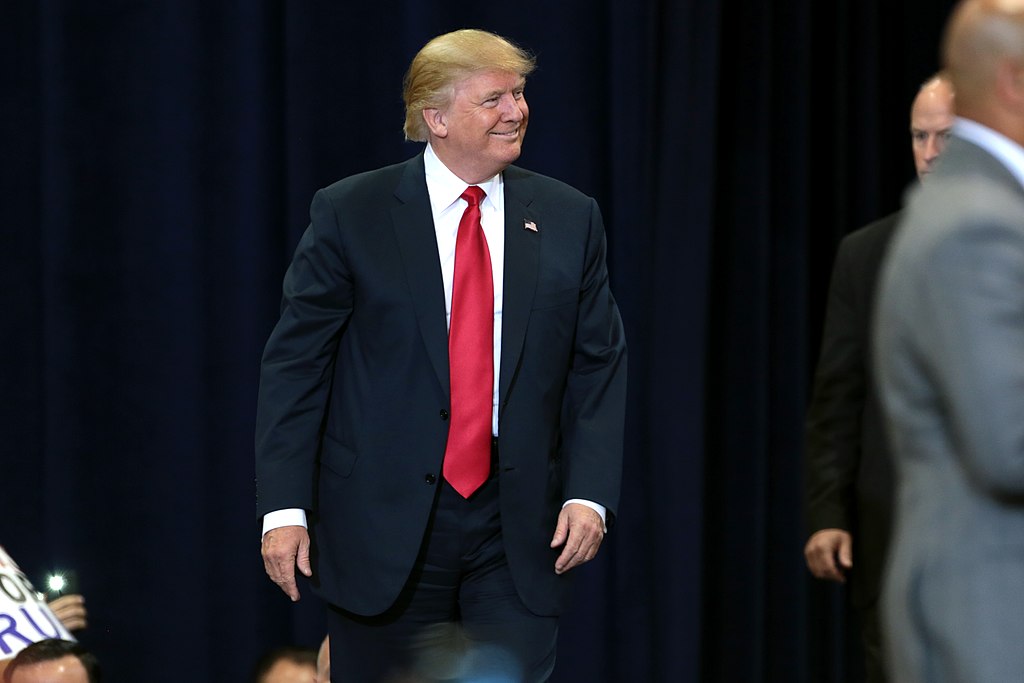As President-elect Donald Trump prepares to take office in January 2025, digital privacy has emerged as a contentious issue on his policy agenda. Amid growing concerns over data breaches, surveillance, and cybersecurity threats, Trump’s administration aims to reshape the digital privacy landscape, balancing national security with individual freedoms.
According to sources within the administration, Trump’s policies will prioritize stricter government oversight of tech companies while enhancing data protection standards. However, critics argue that these measures may infringe on personal privacy, sparking widespread debate about the implications for everyday Americans and the broader tech industry.
Trump’s administration has signaled plans to expand the federal government’s ability to access encrypted data in cases of national security. Advocates for the policy argue that it is critical for combating cybercrime and terrorism, but opponents warn that it could lead to unwarranted surveillance and weakened data encryption standards.
Striking a Balance Between Privacy and Security
The core of Trump’s digital privacy policy revolves around revisiting Section 230 of the Communications Decency Act, which provides liability protections for online platforms. The administration has called for reforming the legislation to hold tech companies accountable for misuse of user data. By increasing transparency requirements and imposing stricter penalties for data breaches, Trump’s team believes these reforms will restore trust in digital platforms.
At the same time, Trump’s proposal to mandate “backdoors” in encrypted communications for law enforcement agencies has drawn criticism from privacy advocates. Cybersecurity experts argue that such backdoors could weaken encryption for everyone, making systems more vulnerable to exploitation by malicious actors. Additionally, civil rights organizations have raised concerns about the potential misuse of surveillance tools to target marginalized communities or political opponents.
Despite these criticisms, the administration remains steadfast in its approach. Trump’s advisors argue that national security must take precedence over individual privacy concerns in an era of sophisticated cyber threats. They cite recent high-profile ransomware attacks as evidence of the need for stronger government intervention in the digital realm.
Public Reaction and Social Media Debate
Trump’s digital privacy policies have ignited a firestorm of opinions online, with netizens divided over the implications of his proposals.
- @TechAdvocate: “Trump’s encryption backdoor plan is a disaster waiting to happen. Privacy isn’t negotiable. This sets a dangerous precedent.”
- @PatriotForSecurity: “Finally, a leader who’s willing to take action on cybersecurity! We need stronger tools to stop criminals and terrorists.”
- @DataRightsNow: “The government accessing our encrypted messages? That’s not security; that’s Orwellian surveillance!”
- @FreedomDefender2025: “Reforming Section 230 is long overdue. Big Tech has abused its power for too long.”
- @CryptoGuru: “Mandatory encryption backdoors will break the internet’s security. Hackers will love this.”
- @LibertyWatchDog: “We can’t trust the government with this kind of power. Privacy rights are human rights!”



 Denver Mayor Orders Police to Protect Protesters, Restricts ICE Access to City Property
Denver Mayor Orders Police to Protect Protesters, Restricts ICE Access to City Property  Germany and China Reaffirm Open Trade and Strategic Partnership in Landmark Beijing Visit
Germany and China Reaffirm Open Trade and Strategic Partnership in Landmark Beijing Visit  USITC to Review Impact of Revoking China’s PNTR Status, Potentially Raising Tariffs on Chinese Imports
USITC to Review Impact of Revoking China’s PNTR Status, Potentially Raising Tariffs on Chinese Imports  Philippines, U.S., and Japan Conduct Joint Naval Drills in South China Sea to Boost Maritime Security
Philippines, U.S., and Japan Conduct Joint Naval Drills in South China Sea to Boost Maritime Security  Russia Signals Openness to U.S. Security Guarantees for Ukraine at Geneva Peace Talks
Russia Signals Openness to U.S. Security Guarantees for Ukraine at Geneva Peace Talks  HHS Adds New Members to Vaccine Advisory Panel Amid Legal and Market Uncertainty
HHS Adds New Members to Vaccine Advisory Panel Amid Legal and Market Uncertainty  Trump Warns Iran as Gulf Conflict Disrupts Oil Markets and Global Trade
Trump Warns Iran as Gulf Conflict Disrupts Oil Markets and Global Trade  Trump Floats “Friendly Takeover” of Cuba as Rubio Reportedly Engages in Talks
Trump Floats “Friendly Takeover” of Cuba as Rubio Reportedly Engages in Talks  Dominican Republic Unveils Massive Rare Earth Deposits to Boost High-Tech and Energy Sectors
Dominican Republic Unveils Massive Rare Earth Deposits to Boost High-Tech and Energy Sectors  Pentagon to Halt Ivy League Programs for U.S. Military Officers Starting 2026
Pentagon to Halt Ivy League Programs for U.S. Military Officers Starting 2026  Trump to Address Nation as U.S. Launches Strikes in Iran, Axios Reports
Trump to Address Nation as U.S. Launches Strikes in Iran, Axios Reports  Argentina Senate Approves Bill to Lower Age of Criminal Responsibility to 14
Argentina Senate Approves Bill to Lower Age of Criminal Responsibility to 14  ICE Hiring Surge Raises Vetting Concerns Amid Rapid Expansion
ICE Hiring Surge Raises Vetting Concerns Amid Rapid Expansion  U.S.-Israel Strike on Iran Escalates Middle East Conflict, Trump Claims Khamenei Killed
U.S.-Israel Strike on Iran Escalates Middle East Conflict, Trump Claims Khamenei Killed  Netanyahu Suggests Iran’s Supreme Leader Khamenei May Have Been Killed in Israeli-U.S. Strikes
Netanyahu Suggests Iran’s Supreme Leader Khamenei May Have Been Killed in Israeli-U.S. Strikes  Pentagon Leaders Monitor U.S. Iran Operation from Mar-a-Lago
Pentagon Leaders Monitor U.S. Iran Operation from Mar-a-Lago  Venezuela Oil Exports to Reach $2 Billion Under U.S.-Led Supply Agreement
Venezuela Oil Exports to Reach $2 Billion Under U.S.-Led Supply Agreement 
































